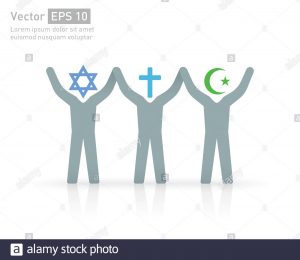 The “Anti-Semitism and Racism” tandem sells
The “Anti-Semitism and Racism” tandem sells
As Africans we have enough experience of organized social fragmentation, used to pit ethnic groups against each other. This has already cost us nearly a million lives in Rwanda. Anyone who had any knowledge of the Rwandan tragedy, learned that the media and radio stations of the time were full participants to set the tone for the genocide. It started out with words first. Today the media have a very hot topic on their hands, one of their all-time favorites. time. One of the terms alone is juicy enough for the media to attract a significant following. Jew is synonymous with so many clichés in the supremacist mind, that there is no need to go very far to reach the uncomfortable area. Anti-Semitism called them killers of the Christ, of bankers, of communists, having a double allegiance, one thing and its opposite, so much that disgust can be perpetuated. Clichés about foreigners also abound. Movies and TV series, inflated by a constant pounding of news and experts, speak of a “clash of civilizations”, thus expanding the alienation gap. Immigrants are marked with an innate exotic strangeness.
When there is a concern for the safety or survival of any of these groups, a lot of people pay attention to it. Some of them rub their hands in satisfaction and anticipation of the benefits of the disaster. One of the reasons for this common treatment seems to be that in the past Jews and Arabs were assimilated in the same cultural box, from the point of view of Europe. A trace of this survives in the graphics from those times that we still have today. In biblical illustrations, or the Passover Hagadah, when they showed ancient images, the prophets and biblical figures were usually dressed as Arabs, riding a camel or sitting in tents like Bedouins. As in the old days in the eyes of Europe, the Jews represented the strange landscape. From a theological point of view, too, Judaism in the eyes of the Christian masses was indistinct. of Islam. As in most eyes of the world, Sikhism and Hinduism are the same. There is ignorance at play in this type of confusion, but there is also a fact that can be overlooked. to the actors themselves. They come from the same landscape, whether genetically, geographically, linguistically or even religiously. The differences between them, which the world barely understands, are in fact nuances, which must not turn into a furious opposition taking the attention of the whole world.
We might have a problematic appetite for attention from the protagonists on the one hand, confusing itself with a problematic appetite for mass-marketing racial clichés of the other. In reality, no one wants to see this clash. Whatever the bias, that would be equivalent to telling the majority of people on the planet that certain lives are worth more
than others, even on the basis of nuances between similar people, who are openly
hated for belonging to the same context. The game of saying “I’m better than him!” to people who want to see the two dead, who give them arguments and weapons to kill each other, must stop. In their eyes, these fighting brothers are the same man.
it is the same insult. You cannot clean and wash each other. The problem is
in the eyes of those who hate both. Not based on differences and nuances,
but on obvious similarities which make their complaints against each other suspect in the un-learned exterior.
